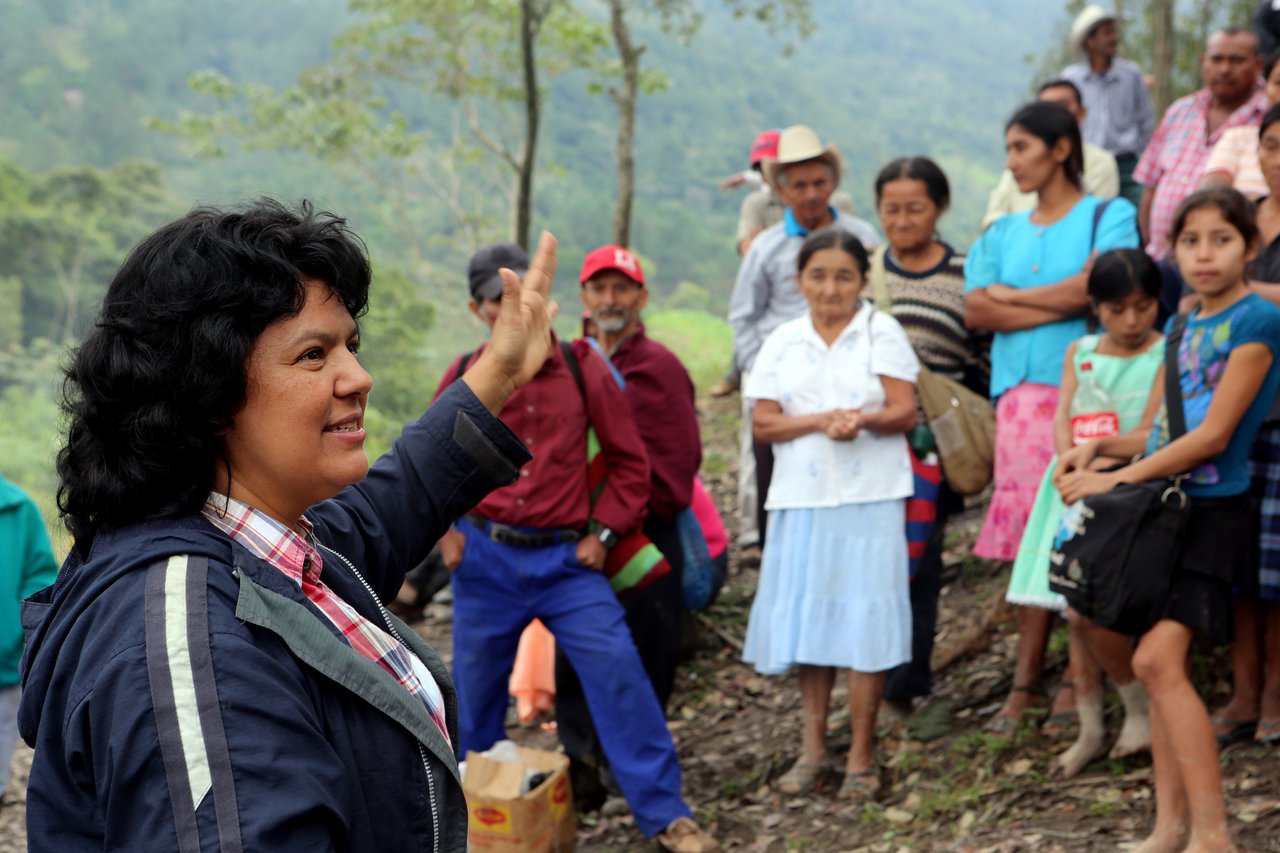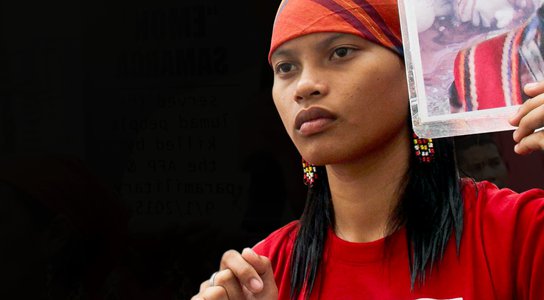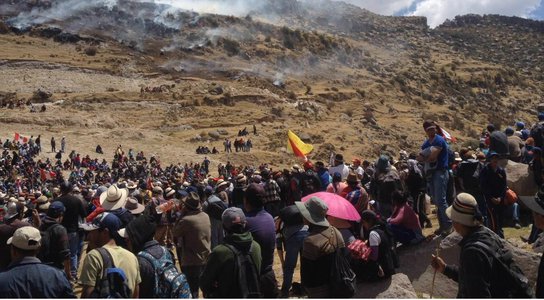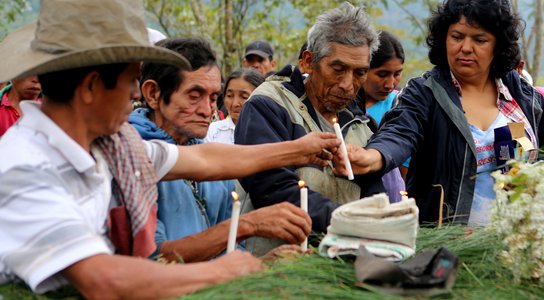On Human Rights Day we pay tribute to victims of a violent campaign against those who stand up to powerful interests stealing their land and trashing the environment
If you knew that speaking up for your rights could put you and your family in danger, would you?
Most of us are lucky enough to never face such a decision. But it’s a risk José Ángel Flores ran as president of a land rights organisation in Honduras – the most dangerous place in the world to stand up for the right to land and a safe environment.
For years subject to death threats and at least one failed assassination attempt, José Ángel’s luck ran out one afternoon in October, when masked men shot and killed him and another member of his organisation, Silmer George, in the town of La Confianza.
Their murders are amongst the latest this year in a wave of killings in Latin America that have continued since the high-profile shooting of activist Berta Cáceres in March. Her case has become emblematic of a struggle being played out across the globe, from Cambodia to Colombia and the Democratic Republic of Congo, between communities and powerful government, business, and criminal groups seeking to control and exploit ever-scarcer land and resources.
It’s a struggle that is taking a deadly toll on peaceful campaigners who stand against environmental destruction – and one that shows no signs of abating, as shocking stories continue to emerge from communities across Latin America and beyond.

Berta Cáceres, a high-profile activist who campaigned for the defence of indigenous land rights, was killed in March 2016. Photo credit: Goldman Environmental Prize
The last six months alone have seen numerous killings of environmental and land activists - like Luíz Alberto Araújo, a local government official who exposed the environmental impacts of big businesses, assassinated in front of his family in Brazil. Or like Jeremy Barrios, who worked for an environmental and human rights organisation in Guatemala, shot dead in November aged just 22. And like Lesbia Yaneth, a member of the indigenous rights group founded by Berta Cáceres in Honduras, found dead in a rubbish dump in July.
Their names might be unfamiliar, but their stories should matter to all of us. When these people - the front-line defenders of the environment - are harassed, threatened, and silenced, this human tragedy contributes to a dangerous global trend of collusion between state and corporate interests to exploit the environment at any cost.
Such exploitation is often carried out in the name of “development” - but development without the participation of local communities, development that bulldozes indigenous rights and silences opposition, is no development at all. That’s why, on Human Rights Day, we’re supporting the call of communities and civil society groups around the world for international finance institutions, governments, and businesses to promote development that respects human rights, ensure meaningful civil society participation in development activities, and acts to protect those at the front line of the fight for rights everywhere.
The names and the struggles of Jose Angel Flores, Luíz Alberto Araújo, Jeremy Barrios, Lesbia Yaneth, and hundreds of others like them deserve to be known and remembered. As long as courageous individuals like these are being killed for exercising – and protecting - their human rights, Global Witness will continue to work with partners around the world to help tell their stories, end the impunity that has let those responsible for their deaths go unpunished, and fight for a world where nobody should be fearful to stand up for their rights or defend their home and environment.


